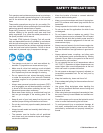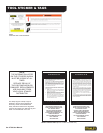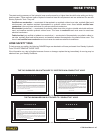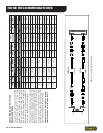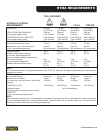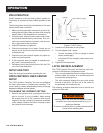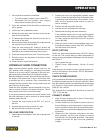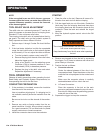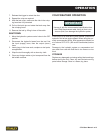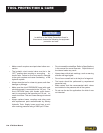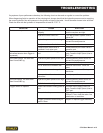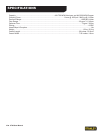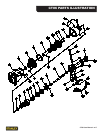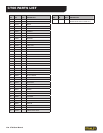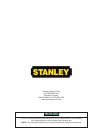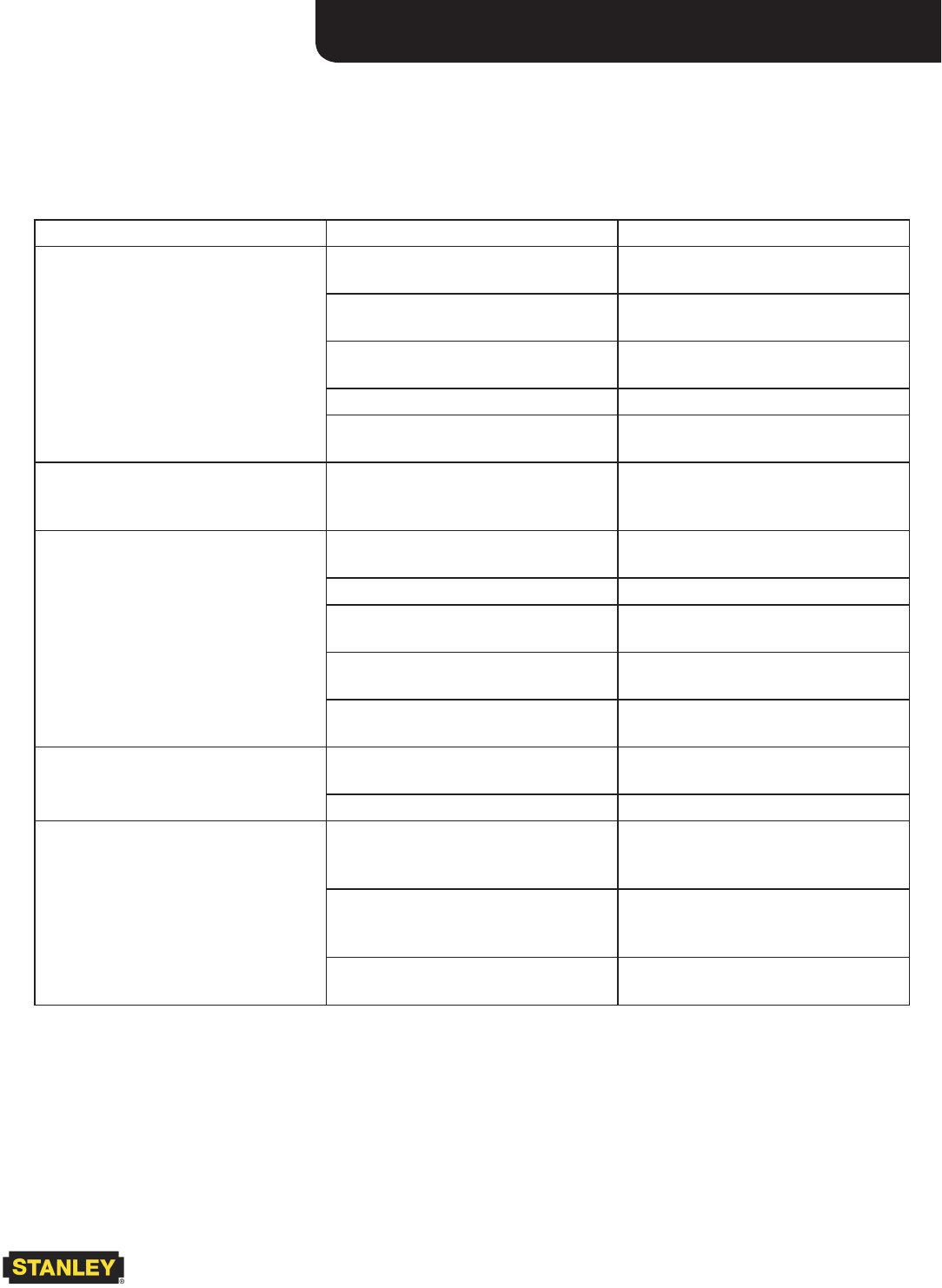
CT06 User Manual ◄ 15
TROUBLESHOOTING
If symptoms of poor performance develop, the following chart can be used as a guide to correct the problem.
When diagnosing faults in operation of the crimping tool, always check that the hydraulic power source is supplying
the correct hydraulic ow and pressure to the grinder as listed in the table. Use a owmeter known to be accurate.
Check the ow with the hydraulic oil temperature at least 80 °F/27 °C.
PROBLEM CAUSE SOLUTION
Tool does not operate. Hydraulic hoses not connected
properly.
Make sure hoses are connected
and the couplers are tight.
Hydraulic control valve OFF. Turn the hydraulic system control
valve ON.
Hydraulic system not functioning. Check hydraulic power unit for
correct ow and pressure.
Couplers or hoses blocked. Remove obstruction.
Pressure port check valve is
installed in tool return port.
Install pressure port check valve in
pressure port.
Tool operates in reverse (piston
advances/retracts when trigger is
squeezed).
Hoses connected to wrong ports on
tool.
Connect input (supply) line to IN
port. Connect output (return) line to
OUT port.
Tool under-crimps. Die load less
than 6 tons/5443 kg.
Hydraulic system pressure too low. Check hydraulic power source for
correct ow and pressure.
Relief valve set too low. Increase relief valve pressure.
Dirt or obstruction between dies. Remove obstruction. Clean die
area.
Piston seal worn or damaged. Contact an authorized Stanley
distributor.
Improper die set for wire and
connector.
Install proper die set.
Tool over-crimps. Die load more
than 6 tons/5443 kg.
Hydraulic system pressure too high. Check hydraulic power source for
correct ow and pressure.
Relief valve set too high. Decrease relief valve pressure.
Trigger difcult to operate. Hoses connected to wrong ports on
tool.
Connect input (supply) line to IN
port. Connect output (return) line to
OUT port.
Excessive back-pressure. If back-pressure is greater than
250 psi/17 bar, clear the return line
obstruction or restriction.
Trigger guard bent and binding on
spool in bore.
Repair or replace trigger assembly.



